Israel’s decision to halt fuel shipments to Gaza grave act of aggression: Hamas
The Palestinian Islamic Resistance movement, Hamas, has strongly condemned the Israeli regime’s decision to stop fuel shipments into the Gaza Strip, describing the measure as a “grave act of aggression” that would toughen economic hardship in the besieged enclave.
Hamas spokesman Fawzi Barhoum said in a statement on Thursday that “Israel’s continued escalation on the Gaza Strip and stoppage of fuel shipments [into the territory] constitute a dangerously aggressive and unpredictable act, and the Occupation (Israel) bears responsibility for all possible consequences.”
Barhoum noted that such aggressive policies are aimed at exacerbating the crises facing Palestinians in the Gaza Strip, paralyzing their daily lives, and disrupting efforts meant to confront the spread of coronavirus amid regional and international silence.
Earlier in the day, Israeli officials said they would stop fuel shipments into the Gaza Strip in response to Palestinians' launching of incendiary balloons into the occupied territories from the enclave.
The Israeli army attacked targets in the Gaza Strip in the early hours of Thursday morning. The military said that Israeli warplanes, combat helicopters and tanks hit a number of targets belonging to Hamas.
“During the attack, military facilities of Hamas’s naval force, underground infrastructure and observation posts belonging to the group were attacked,” the Israeli army said in a statement..
Gaza-based Palestinian media outlets said the strikes hit targets across the Gaza Strip, from the border city of Rafah in the southern part of the enclave to Beit Hanoun city on the northeast edge of the impoverished territory.
Hamas observation posts were attacked close to Gaza City and Deir al-Balah in the central part of the Strip, media reports said.
Israel also slashed Gaza’s permitted fishing zone on Wednesday night in response to the balloon attacks, halving the area from 15 nautical miles to eight.
The Gaza Strip has been under Israeli land, air and sea blockade since June 2007, after Hamas, which has vowed to resist Israeli occupation, rose to power in the enclave, where two million people live.
Since then, the regime has been launching incessant aerial attacks on the territory for, what observers call, self-serving reasons. Since imposing the siege, it has also brought Gaza under three wholesale wars, killing thousands of Palestinians in each.
The crippling Gaza blockade has caused a sharp decline in the standard of living as well as unprecedented levels of unemployment and unrelenting poverty in the strip.
Trump insists Egypt, Jordan will accept displaced Gazans
VIDEO | Press TV's news headlines
Resistance leaders pay tribute to Hamas military commander
Sweden to give Ukraine $1.2bn in military aid
VIDEO | Resistant prisoners released
Turkey says Israeli airstrike killed three nationals on Lebanon border
VIDEO | Press TV news headlines
Iran's foreign minister meets Hamas leaders during Doha visit







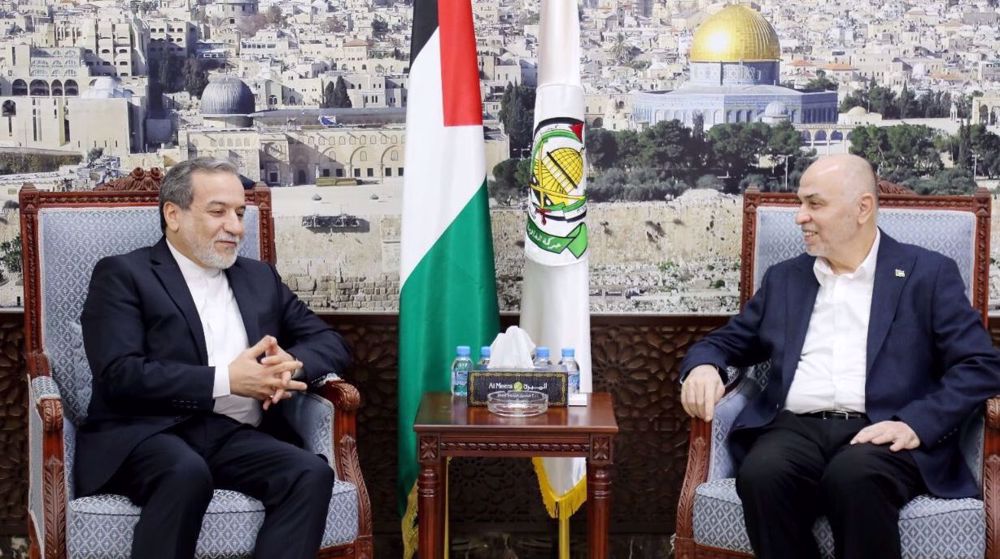



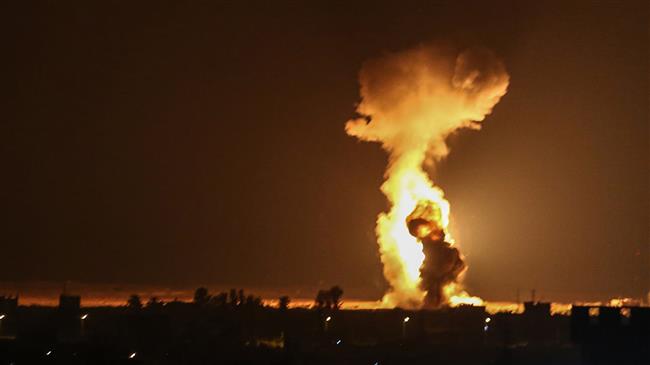
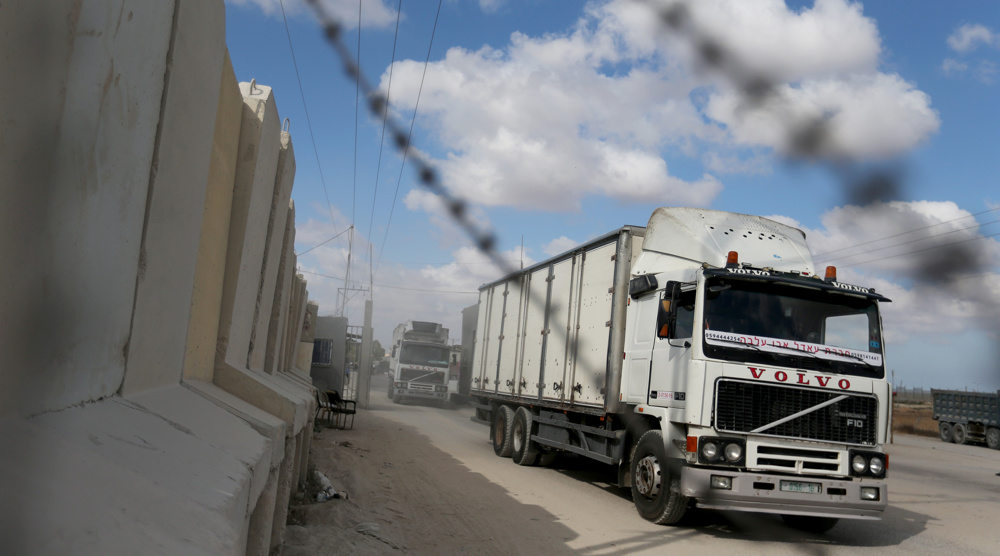
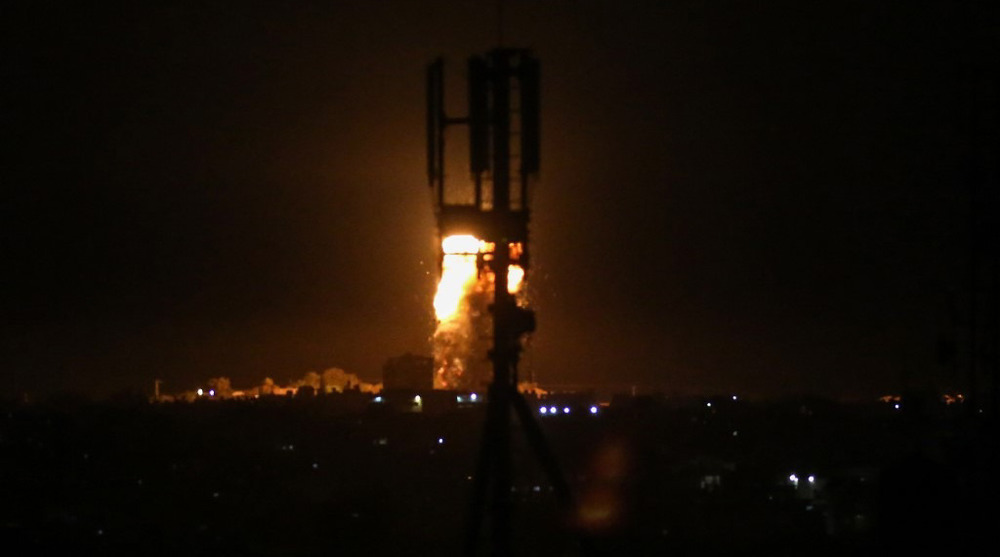
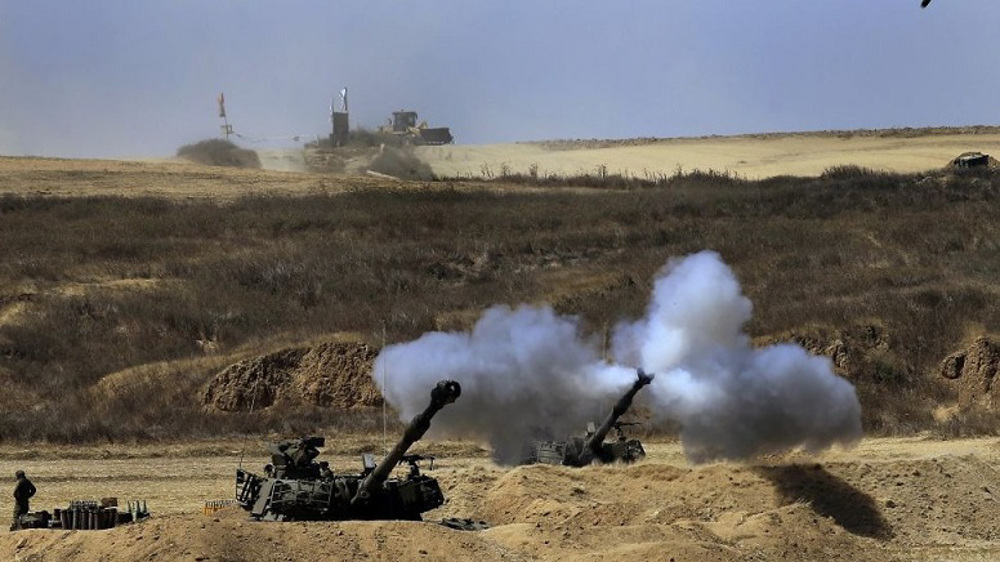



 This makes it easy to access the Press TV website
This makes it easy to access the Press TV website